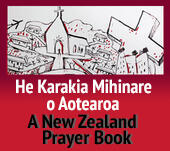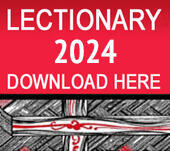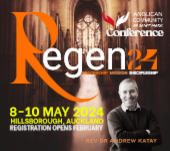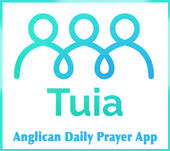An insufficient supply of safe and affordable housing in New Zealand is contributing to a level of poverty that is fracturing the wellbeing of people and communities and hindering the educational progress of our children.
Ensuring that everyone has access to affordable housing is perhaps the most important means to lifting New Zealanders out of poverty and boosting the nation’s collective health and prosperity.
We are committed to working with Government and community groups on a comprehensive housing plan that will address New Zealand’s housing crisis.
New Zealand’s housing situation is at a critical point
• The total number of State, local government and community housing units is falling, while New Zealand’s population and housing need is growing.
• Half the population lives in rental housing, including 70% of all children living in poverty.
• The home ownership rate is dropping steadily, despite clear evidence that home ownership contributes to people’s wellbeing.
• Housing costs as a proportion of income is rising, and is well above recognised ‘housing stress’ levels.
• People are struggling to escape the poverty traps of poor quality and expensive rentals with insufficient access to alternative paths into home ownership, such as shared equity or rent-to-buy schemes.
These trends are challenging the fundamental fabric of New Zealand society. A growing imbalance of housing wealth is creating new wealth for some and barriers for others to move ahead. The high cost of housing eats away at any income gains and is driving too many people into homelessness.
The costs to society of doing nothing in response to this crisis are too high to ignore. Just one example is the harm to the cognitive and emotional development of young children growing up in poverty in poor quality and insecure housing.
These effects are huge and long-lasting for such children, their whānau/families, their communities and, ultimately, the economy. Wise investment by government in facilitating leadership and using the combined resources of land, finance, rules and regulations will reduce these costs.
New Zealand’s current housing crisis has happened because of decisions of successive governments, and a new approach is needed. Church leaders believe we are at a kairos* moment, when crisis can trigger a renewed vision for a better collective future.
We call upon the Government to lead and host the formation of a comprehensive and effective housing plan by bringing diverse groups (political parties, iwi, regions, community organisations and developers) to the table. We commit to working with Government and others to help formulate and enact this plan.
* Kairos is an ancient Greek work meaning ‘opportunity’ or ‘season’. It is related to the word kara (‘head’). A ‘kairos moment’ can be understood as a time when matters ‘come to a head’,necessitating decisive action. A kairos moment is an invitation to ‘seize the day’.
Leadership is needed to deliver a housing plan that works
Visionary leadership is needed to craft a housing plan that will guide practical action. Such a plan will tap into expertise from across the country, be flexible enough to respond to diverse situations, and have the strength and backing of Government. It will support short-term and long-term responses, drawing upon diverse local and cultural representation to ensure locally responsive solutions.
The outcome of this housing plan must be to:
• increase the number of houses across the range of housing needs
• ensure these houses are affordable for all
• improve the quality of houses
• increase the security of tenure, be it rental, shared equity or ownership.
Different solutions are needed to meet the needs of different locations. Therefore, this housing plan will provide a range of tools and tailored responses.
For instance, in Auckland the need is for more houses; whereas, on the East Coast it is for better quality homes. Papakainga housing projects are but one example of Māori-led initiatives emerging around the country. Pasifika communities are also working on responses, such as the Tongan Matanikolo project in Mangere.
However, this plan must still view the whole New Zealand housing system as one system, as opposed to only addressing isolated parts of that system. Action is needed across all parts of the housing continuum, because all parts are interconnected and influence each other. It is imperative to avoid piecemeal and ad hoc responses.
The Appendices to this statement set out examples of problems and needed responses across the whole housing continuum to increase supply. These are: the Housing Shareholders Advisory Group Recommendations (that Government has agreed to act on), Scorecard, and the New Zealand Housing Continuum. Our aim must be to meet overall demand and need and to focus on those most in need, while helping all those on lower incomes to find pathways towards better housing.
Build on what works …
The housing plan needs to build on the good work already undertaken by the current and previous governments. We welcome the benefits to low-income families via extended access to income-related rent subsidies to community housing organisations. The growth in the number and scale of community housing organisations is bringing a wider range of housing responses better suited to the needs of local communities. Additional investment in emergency housing is helping to meet the most urgent and critical need for shelter.
New capital funding to fund community housing projects in Auckland and Christchurch is also proving a good way to support fresh housing supply for low-income families. The introduction of minimum standards for rental housing and active enforcement of those standards is also beginning to bring some change in the private sector rental market.
… while urgently addressing gaps
Although helpful interventions have been made, large gaps still need to be urgently addressed. Important aspects of a full response to the housing crisis have not been followed through. More support for shared equity, rent-to-own and other alternative ways to move into home ownership is required.
More needs to be done to require the inclusion of affordable housing in new housing developments (inclusionary zoning). Housing New Zealand needs to build more social housing, and Community Housing Providers need more investment. Stronger rules are required to ensure houses are sufficiently warm and healthy, and better regulation of the private sector rental market to make it easier for people to stay in rental homes long-term.
Prioritise people, homes and communities
The New Zealand Government has signed international agreements and conventions that recognise housing as a basic human right. The United Nations Universal Declaration of Human Rights includes the right to housing, and New Zealand has also committed to the Sustainable Development Goals that include the responsibility to ensure adequate, safe and affordable housing.
Our focus must be on people, their homes and communities – not simply on ‘housing’ or ‘housing products’. Complex problems, such as those we face in housing, require a broad range of solutions. While there is no single solution, visionary and collaborative leadership will transform housing in this country so that New Zealand is a better place for all.
Our rationale
As church leaders, we share a vision of fairness, wholeness of life and commitment to the common good along with New Zealanders across all faiths and cultures. Secure housing is central to this vision and essential for people’s wellbeing. We believe it is the responsibility of Government to ensure the wealth and resources of Aotearoa New Zealand are shared justly and fairly. Ensuring all citizens can access safe and affordable housing – whether as renters or home owners – is a critical way to maintain our collective health and prosperity.
We are committed to working with Government and alongside other groups as part of New Zealand’s housing solution.
Archbishop Philip Richardson
Anglican Church in Aotearoa, New Zealand & Polynesia
Pastor Craig Vernall
Baptist Churches of New Zealand
Cardinal John Dew
The Catholic Church in Aoteroa New Zealand
Rev Prince Devanandan
The Methodist Church of New Zealand
Right Rev Richard Dawson
Presbyterian Church of Aotearoa New Zealand\
Commissioner Andrew Westrupp
The Salvation Army New Zealand, Fiji & Tonga Territory
Rev Dr Richard Waugh
Chair, Church Leaders Aotearoa New Zealand

















Comments
Log in or create a user account to comment.